Duchess of Cambridge ‘super impressed’ by teenagers learning the science of parenting
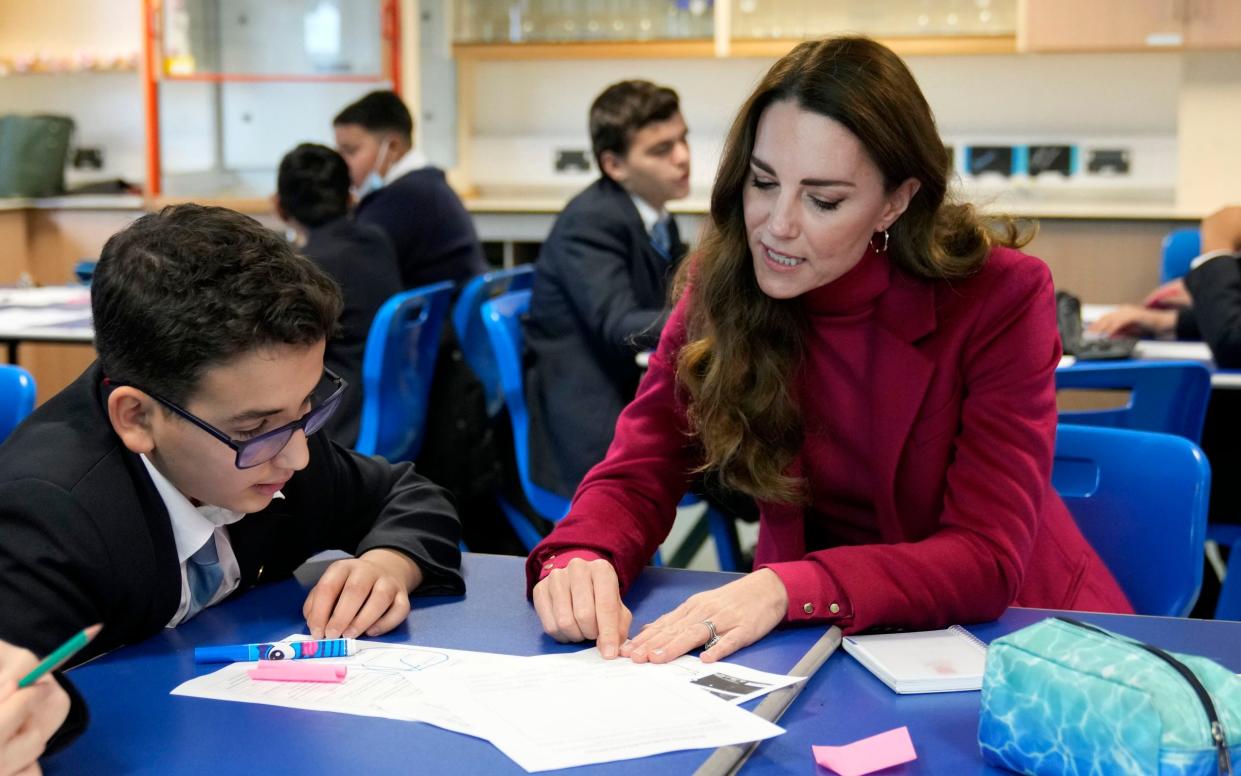
The Duchess of Cambridge has gone back to school for a science lesson in parenting, teaching teenagers how they can one day bring up the next generation of happy babies.
The Duchess, who has three young children and has dedicated her royal work to early years education, told Year Eight pupils that the subject of brain development was a “real passion of mine”.
She sat in on a lesson as students showed off what they had learned about early childhood development and neuroscience, from the importance of talking to newborn babies to how the first five years of life are critical to becoming a happy and healthy adult.
Thanking the teenagers at Nower Hill High School in Harrow, London, for their work, the Duchess said: “Keep thinking about it, keep chatting about it with your friends, and well done – I’m super impressed.”
She asked students: “What’s the most interesting thing you’ve learned?”
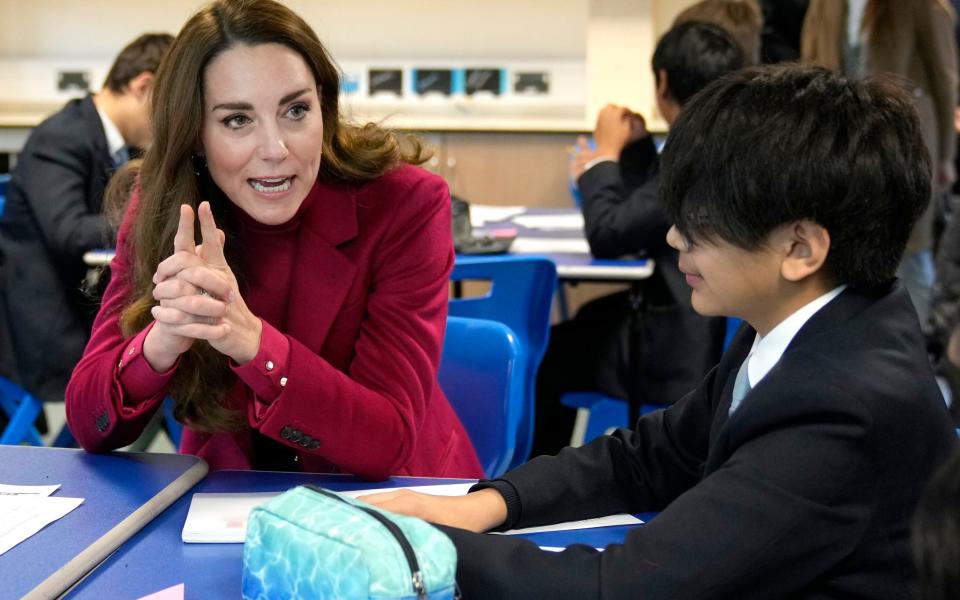
The visit is part of the Duchess’s work at her Royal Foundation Centre for Early Childhood, and follows a research project run by Oxford University that “looks to embed the key principles of early childhood development and neuroscience in students”.
Kensington Palace said that the lessons “focused on the neuroscience underpinning how caregivers’ behaviour is pivotal to childhood development and children’s future outcomes”.
The research project, called Seen, was commissioned and funded by Kindred2, the early years charitable foundation, and developed by the University of Oxford.
It tested a new science curriculum for pupils aged 11 to 14, and found that nearly nine out of 10 of the 3,700 who took part could now give practical examples of what they could do to maximise a child’s development.
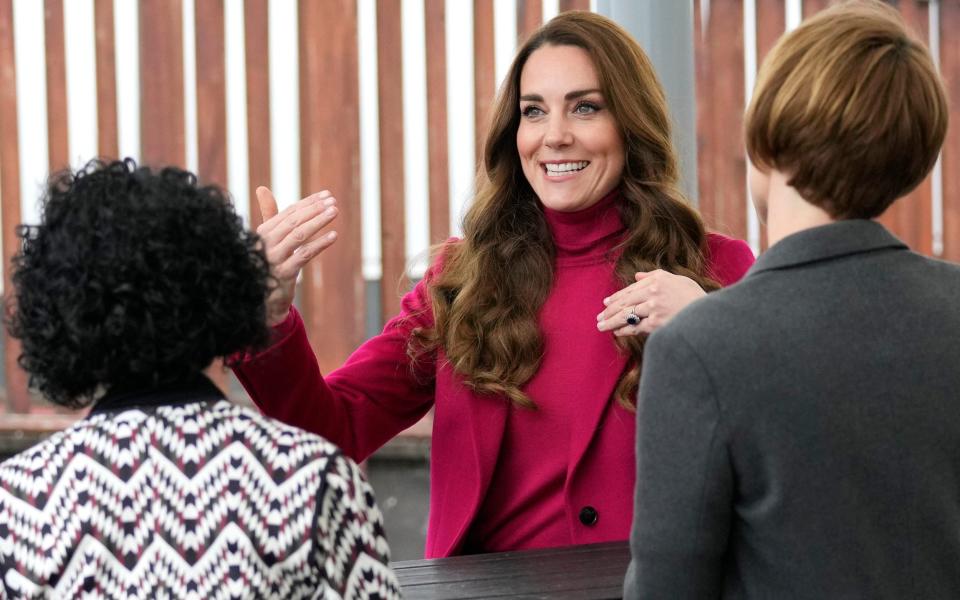
More than 90 per cent finished the classes knowing that a care giver should speak to a baby to promote their language development.
It is hoped that the lessons will stick with young people as they grow up to become parents themselves, helping to transform the outcomes for the next generation.
The Seen team, at the University of Oxford’s department of psychiatry, hope that the key principles of early child development will now be taught in more schools.
“I was so fascinated when I first learnt about this,” the Duchess told students. “How babies’ brains are formed and how they developed and what this means for us when we grow up.
“It’s important to understand how important play is for babies as they develop. It’s not only enjoyable but it helps them to develop.”
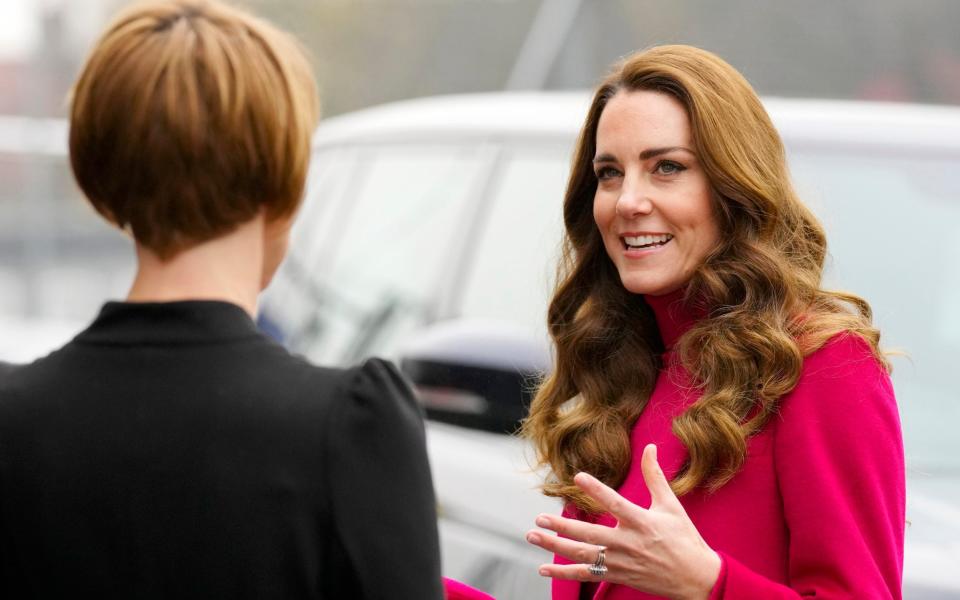
Sitting at a table with four teenagers to listen to their thoughts on child development, she said: “You are so right, that play helps babies develop and so does the way we engage with them. This child isn’t just playing on their own.
“You need to be able to understand a baby’s feelings to help regulate that. The one thing you learn is that your babies are watching you all the time, so ideally you are showing the children what to do. They learn from you, good and bad things.
“So if you can show them how to eat, say, with a knife and fork, then they will start to pick it up.”
Moving between tables of students, she asked them: “How important do you think love is for babies? We know love is important. But what else do parents need to give babies?”
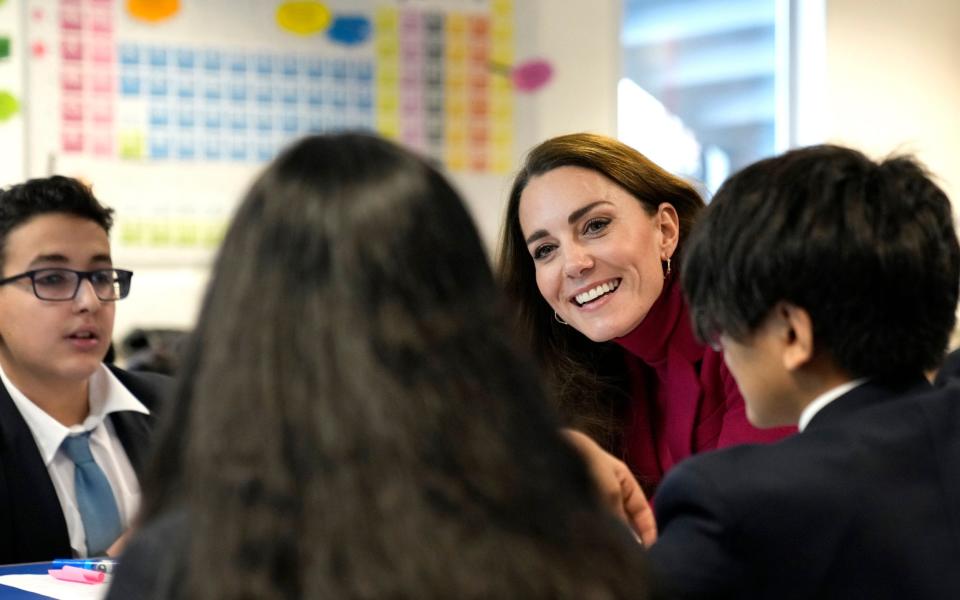
She seemed particularly impressed when one boy said he would utilise his new knowledge to help his siblings too.
“That’s so important,” she told him. “What happens if parents are around or they have work? What do you think about grandparents, aunts and uncles being there?
“I think what we are learning is that all of the people in a baby’s life are important. The more relationships they have, the better.”
Louise Voden, the headteacher at Nower Hill High School, said that the project had had “real resonance” with the children, adding: “We are so delighted that the Duchess chose to come to a large, mixed-ability comprehensive in London.
“We have a wide range of pupils, from those going to Oxford or Cambridge, to those who have more challenging education needs. But all of them have really benefited from this experience. We were really honoured to have hosted her visit.”

 Yahoo News
Yahoo News 
